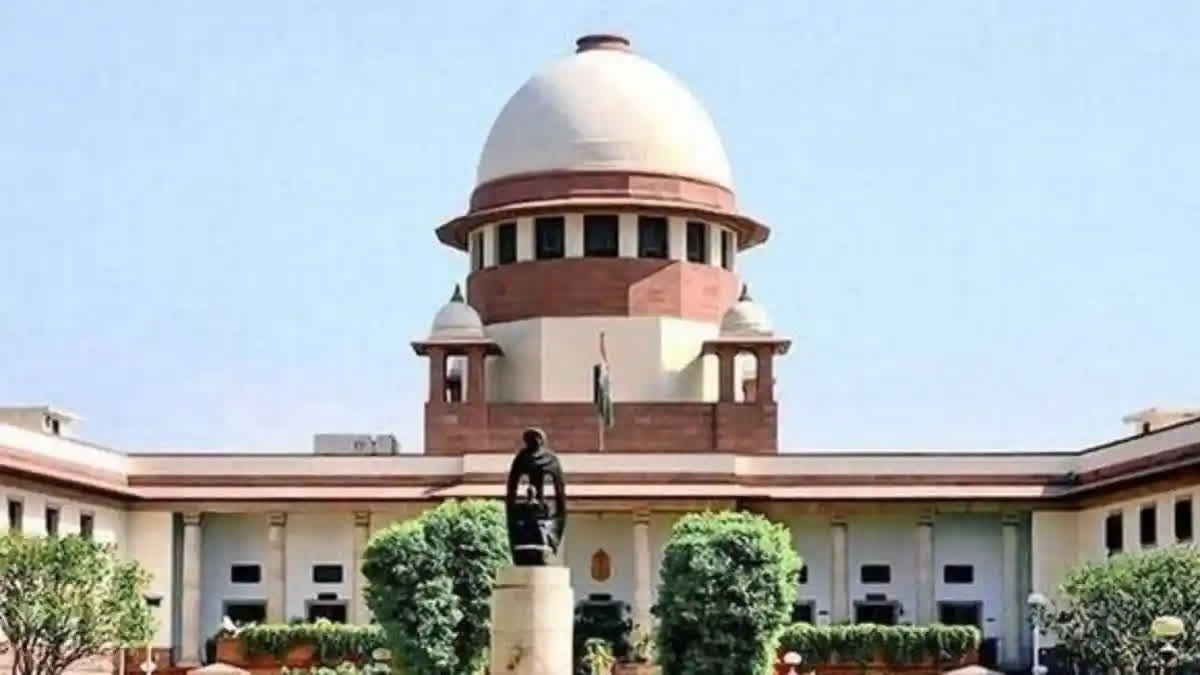New Delhi: The Supreme Court has said there is no burden on the accused to lead evidence for proving his innocence and it is also unsafe to rely upon the testimony of the victim, who entered a hotel with the accused posing as husband and wife while acquitting a person booked for rape.
A bench comprising Justice Abhay S Oka and Ujjal Bhuyan said that the evidence of the prosecutrix and the other prosecution witnesses shows that more than one month before the alleged incident, the appellant-accused and the prosecutrix exchanged frequent WhatsApp messages.
The apex court, in an order passed on March 21, said the prosecutrix had informed the appellant about her visit to Hansi and while coming out of the hotel room, she did not raise any protests, did not make any hue and cry, or did not complain. "She signed the hotel register while leaving the hotel with the appellant. Lastly, while entering the Hotel, the appellant-accused and the prosecutrix posed as husband and wife," noted the bench.
The bench said all this has to be appreciated in light of the fact that we are dealing with a case of a well-educated victim, who was married and a graduate, and her age at the time of the incident was about 28 years.
The bench noted that the brother-in-law of the prosecutrix, who accompanied her to the police station to lodge a complaint, had stated in the cross-examination that even after the incident and before the registration of the complaint, there was a conversation on WhatsApp between the appellant-accused and the prosecutrix about 300 to 400 times. "Thus, even after the incident, the prosecutrix was in conversation with the appellant," said the bench.
The bench said there was no fiduciary relationship between the appellant-accused and the prosecutrix, which will be apparent when we examine the prosecutrix's evidence.
"Therefore, on the face of it, the presumption under Section 114A of the Evidence Act will not apply, and, therefore, the burden will be on the prosecution to prove that the sexual intercourse was without the consent of the prosecutrix. We may also add here that in our jurisprudence unless there is a specific legislative provision which puts a negative burden on the accused, there is no burden on the accused to lead evidence for proving his innocence," said the bench.
The appellant-accused and the prosecutrix were married to others. The prosecutrix alleged that the appellant, known to her as a friend of her husband's brother. It was alleged that the accused offered her a ride when she was waiting for a bus in Hansi in May 2018.
He then took her to a room at a guest house in Bhiwani, in Haryana, under the pretence of stomach pain and after entering the room he locked the door and forcibly had intercourse with her.
"According to the Prosecutrix's version, the appellant-accused entered the guest house first, and she was waiting in the car. If there was any compulsion made by the appellant-accused, the prosecutrix could have got out of the car and walked up to her residence. However, she did not do that," said the bench.
"Therefore, in our considered opinion, the prosecution has failed to prove the appellant's guilt beyond a reasonable doubt. Hence, the impugned orders cannot be sustained, and they are hereby quashed and set aside. The appellant-accused is acquitted of the charges framed against him," said the top court.



